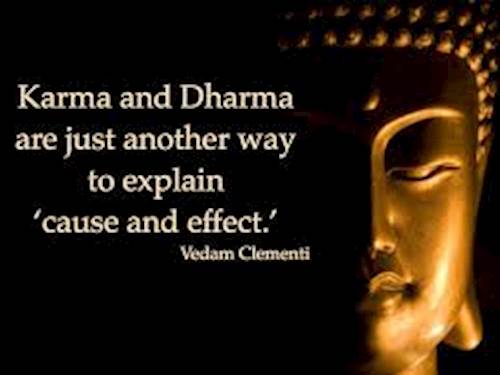

For those of us in the Western world, today's lesson on the Hindu belief system will probably be a bit alien. In fact, other than the word 'karma,' I'm betting most of the terms will be new. In order to help these new concepts stick, we'll try our best to link them to the familiar. As we do this, please remember we'll be doing some real oversimplification, while merely scratching the surface of an ancient faith. With that warning of sorts, let's get going on our terms.
We'll start with atman. Atman basically means your eternal self, the spiritual essence of who you are. It is not the body you inhabit; nor is it not the sum total of your material possessions. It is the spiritual you. For our purposes, we can try to remember this with a sort of play on words, saying atman is the spiritual essence of who 'I am.'
Our closest match to atman is probably our use of the word 'soul.' However, there are some huge differences. For instance, the Western Judeo-Christian system tends to believe when a person dies their soul travels on to heaven or hell. In other words, paradise or eternal suffering are the end of the road.
This is not the case with Hinduism's atman. Instead, it is believed that a person's atman is reincarnated, only to be housed in another physical, but again temporary, body.
Karma
This belief in reincarnation leads us to our next Hindu term - karma. Lucky for us, this one is bit more familiar. In very simplified terms, karma is the Hindu belief that a person's actions in life will determine their fate in the next life. If a person is kind and selfless in this life, they'll be rewarded in the next. Unfortunately, the opposite is also true. If a person is a scoundrel today, let's just say they'll be paying for it in their next tomorrow!
Although our culture doesn't always use the word karma, vestiges of it are apparent in phrases like, 'What goes around comes around,' or 'He sure got what was coming to 'em!'
Dharma
Building on the idea that actions affect life, our next Hindu term is dharma. This one is especially important in the Hindu faith, but probably the most alien to the Western mind. For this reason, we'll give a simple definition, then come back around and try to make it stick.
As for the definition, dharma is the moral force that orders the universe. It's the power that keeps the world in motion and keeps society ticking. It keeps the trees blooming, the grass growing and the birds singing.
However, dharma is maintained through personal duty. Simply put, it's up to humans to do their part to keep the world operating smoothly. With this, dharma is both universal and circumstantial, or personal. I know this seems rather confusing, so we'll come at it using a tangible example.
Most faiths hold to the idea that murder is wrong. Across the board, it's usually a no-no and would go against dharma. However, sometimes murder may be necessary for the greater good. For instance, what if a king kills a few people in order to avoid an all-out war? Although this is a rather violent argument on the use of personal dharma, it's a famous one taken right from the pages of the ancient Hindu story about dharma, known as the Bhagavad Gita.
This website is powered by Spruz
Comments